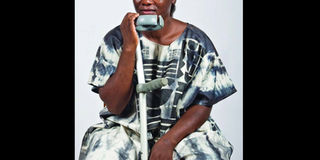Ebola survivors likely to become disabled after a year

Ebola survivors need long-term rehabilitation to keep them from getting disabled, after they recover from illness. PHOTO| FILE| NATION MEDIA GROUP
Scientists from the Liverpool School of Tropical Medicine and the University of Liverpool assessed disability among Ebola survivors, 12 months after they were discharged from a hospital in Sierra Leone. The researchers assessed vision, hearing, mobility, self-care, communication and cognition.
They found that 80 per cent of patients who survived Ebola virus disease (EVD) also became disabled one year after recovery.
Disability in at least one of the six domains was reported by more EVD survivors than their unaffected contacts.
The affected survivors were found to have major mobility, cognitive and visual limitations.
CARE AND REHABILITATION OF EBOLA SURVIVORS
Mobility limitation was the most common with 78 per cent of the survivors reporting it compared to 11 per cent of their contacts. Most of the affected experienced difficulties in walking 100 metres, 500 metres and climbing stairs.
Relative to their contacts Ebola survivors also had higher levels of depression, anxiety, fatigue and pain.
They also showed difficulties in concentrating and remembering and most of them suffered from blurred vision.
“We have demonstrated that a year following acute disease, survivors of the West African EVD outbreak continue to have a higher chance of disability in mobility, cognition and vision than their close contacts. Issues such as anxiety and depression persist in EVD survivors and must not be neglected,” said lead researcher Dr Soushieta Jagadesh.
The study underscored the need of care and rehabilitation of Ebola survivors to mitigate some of this disability.
Further evaluation of the scale of disability in larger survivor cohorts is required, as is a new focus on sustainable long-term rehabilitation for EVD survivors.



